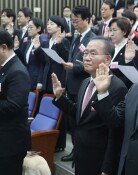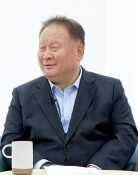Bidding for U.S. advanced pilot training begins next year
Bidding for U.S. advanced pilot training begins next year
Posted December. 30, 2016 07:02,
Updated December. 30, 2016 07:33

According to KAI, the country's aircraft maker, on Thursday, the U.S. Airforce will issue Request For Proposal (RFP) on APT to manufacturers on Friday or Saturday local time. The competition for winning the APT orders will initiate in earnest, and the RFP will describe requirements for the next APT. The key to winning the order would be precisely meeting the requirements and suggest a competitive price at the same time.
Aerospace industry insiders expect three major manufacturers to vie for the bid; the KAI-Lockheed Martin consortium, the Boeing-Saab consortium, and the Northrop Grumman-British Aerospace (BAE) consortium. The bid will also wield huge influence on their reputations, as all contenders are globally renowned defense and aerospace companies.
As the strategic partner to Lockheed Martin, the world’s largest defense giant, KAI will compete with its latest supersonic APT “T-50A.” Among other competing models, T-50A was the first to succeed in the first flight in early June, and is evaluated as the most advanced model. With 5,000 accident-free flights, 10 years in operation by the Korean Air Force, and over 100 airframes manufactured, KAI’s T-50A has proven its performance.
There are voices worrying that the currently muddled domestic politics will be incapable of supporting such large-scale defense project, which desperately requires governmental support. While the project will undergo a critical period from June to September next year, bilateral communication between Seoul and Washington will face a murky outlook, as the period will overlap with the peak of South Korean presidential campaigns or come right after the election. Against all odds, KAI CEO Ha Sung-yong and executives are strongly determined to win the bid, and even wrote down their letters of resignation beforehand to take full responsibilities once they lose the bid.
The U.S. Air Force plans to sign contracts with the final winner in late 2017, and will complete the mass production by 2032. While the first orders will be limited to 350 models, demands will reach to 1,000 when factoring in additional orders from the U.S. Navy or for fake enemy aircraft. Once selected as the winner, the lucky consortium will lead the global APT market in the future.
Sung-Gyu Kim sunggyu@donga.com







